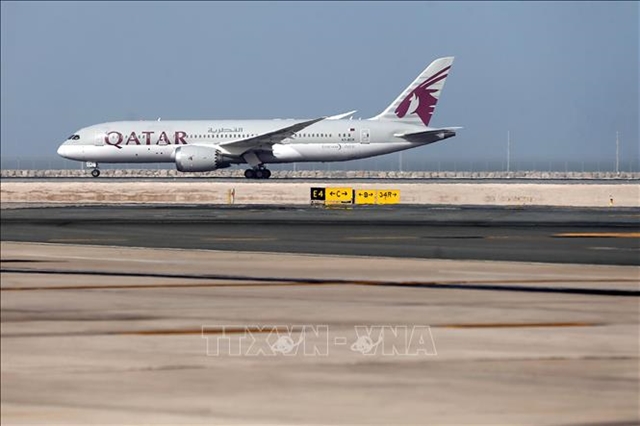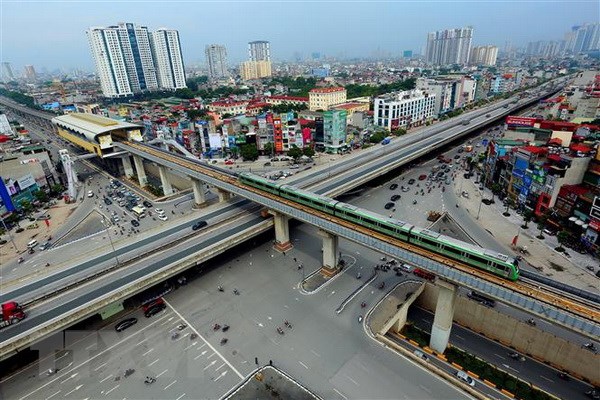 Economy
Economy


|
| A view of Hà Nội's elevated railway line. VNA/VNS Photo |
HÀ NỘI — Việt Nam's economy is expected to make a strong come back this year with a 6.5 per cent growth forecast, said economists from the Asian Development Bank (ADB) during a press conference yesterday in Hà Nội.
ADB said the forecast is based on the country's high vaccination coverage (more than 90 per cent according to a government source and one of the world's highest), trade expansion, and continued accommodative monetary and fiscal policies.
The Southeast Asian economy reported a 2.6 per cent growth last year as renewed COVID-19 outbreaks severely hampered its economic recovery, tightened the labour market, and disrupted manufacturing and supply chains. Inflation decelerated to 1.8 per cent in 2021 from 3.2 per cent in 2020 on weak domestic demand; last year’s inflation rate was the lowest since 2016.
The labour market suffered severe shocks from both the supply and demand sides as the economy weakened and workers left the labour force, which fell by 2 million workers aged 15 and over in Q3 from the previous quarter, said a report by ADB.
"High vaccination rates enabled the government to abandon harsh containment measures. This timely shift of the pandemic containment strategy helped restore economic activity and reduce bottlenecks in the business environment," said ADB Country Director for Việt Nam Andrew Jeffries.
A recovering labour market and other stimulus measures will spur industrial growth by a forecast 9.5 per cent in 2022, contributing 3.6 percentage points to GDP growth. The sector got off to a strong start this year. The manufacturing purchasing managers’ index rose to 53.7 in January (over 50 indicating expansion) and to 54.3 in February from 52.5 in December, the fourth straight month of growth.
The Government’s tourism-reopening policy implemented in March and the lifting of pandemic controls are expected to boost services, with the sector forecast to grow by 5.5 per cent and contribute 2.3 percentage points to GDP growth this year. Accelerated disbursements will drive construction and related economic activities.
Improved coordination between the central and local governments and restored labour mobility will continue to build domestic and foreign investor confidence. The Regional Comprehensive Economic Partnership, which came into effect on January 1, 2022, is expected to accelerate trade recovery once the COVID-19 pandemic subsides, forming stable and reliable export markets.
On the other hand, ADB voiced concern over the high number of COVID-19 infections recorded since March, saying it may obstruct economic recovery should the country fail to bring the virus under control. Uncertainties regarding global oil prices may give spur inflation, which has been said to accelerate to 3.8 per cent in 2022 and 4 per cent in 2023.
ADB also urged the country to quickly move to reform its complex and rigid public investment procedures, saying it may hinder Việt Nam’s timely implementation of the infrastructure programmes, which are crucial to long-term economic development. — VNS




